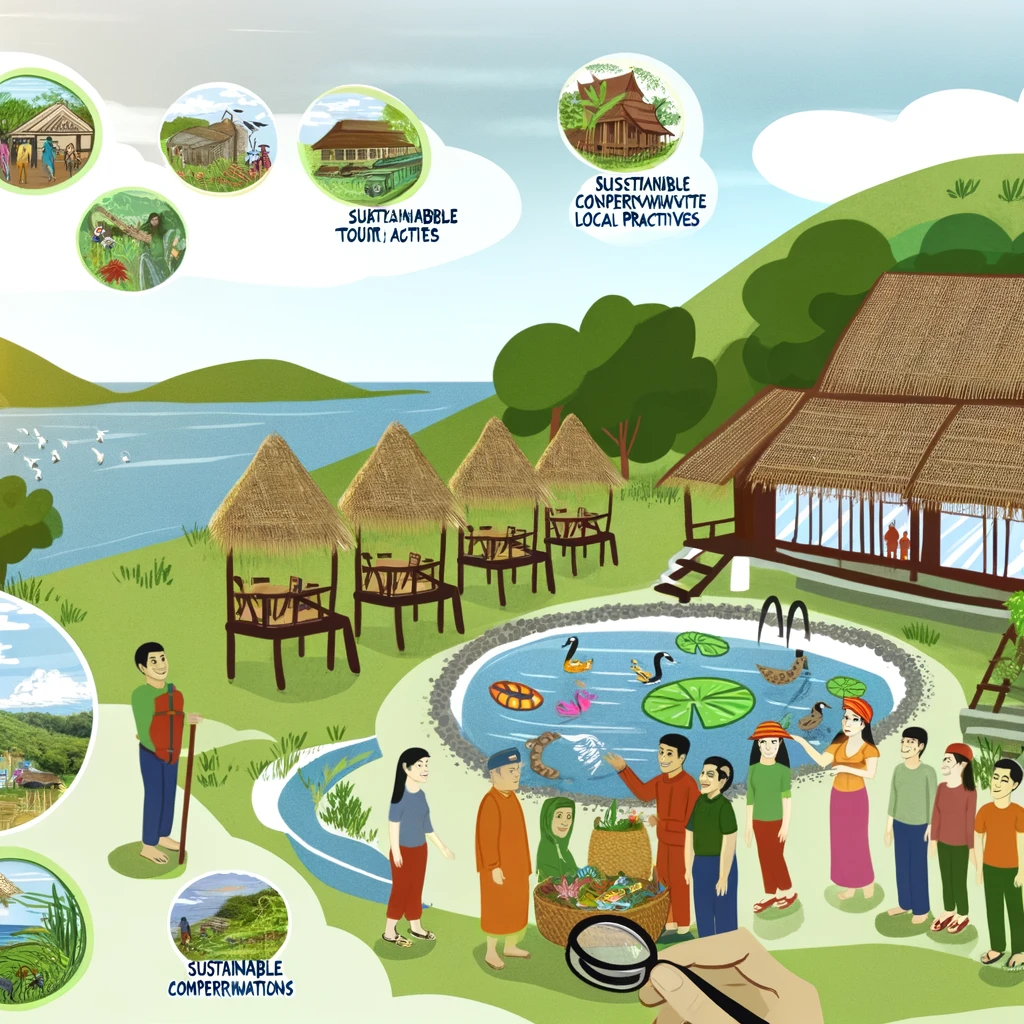
Sustainable tourism has emerged as a critical approach to travel that seeks to minimize negative impacts on the environment, preserve cultural heritage, and promote socio-economic benefits for local communities. This article aims to provide an informative and objective analysis of sustainable tourism practices and their impact, exploring key factors, tradeoffs, challenges, and the importance of considering the impact on both environmental and socio-cultural fronts.
Understanding Sustainable Tourism Practices
Defining Sustainable Tourism
Sustainable tourism encompasses a set of principles and practices that aim to minimize the negative impacts of tourism while maximizing its positive contributions. It involves responsible travel behavior, environmental conservation, cultural preservation, and community engagement, with the overarching goal of achieving a balance between tourism development and the well-being of destinations and host communities.
Key Factors Impacting Sustainable Tourism
1. Environmental Conservation
Environmental conservation is a fundamental aspect of sustainable tourism, focusing on minimizing resource consumption, reducing pollution, and protecting natural ecosystems and wildlife habitats. Sustainable tourism practices include eco-friendly accommodations, waste management, renewable energy use, and nature-based activities that promote environmental stewardship and biodiversity conservation.
2. Socio-cultural Preservation
Preserving socio-cultural heritage and promoting cultural exchange are essential elements of sustainable tourism. This involves respecting local customs, traditions, and beliefs, supporting indigenous cultures, and engaging with local communities in a respectful and mutually beneficial manner. Sustainable tourism initiatives often include cultural tours, handicraft workshops, and community-based tourism projects that empower local residents and preserve cultural identity.
3. Economic Benefits
Sustainable tourism can generate significant economic benefits for destination communities, including job creation, income generation, and infrastructure development. By supporting local businesses, artisans, and entrepreneurs, sustainable tourism contributes to poverty alleviation, economic diversification, and inclusive growth, helping to reduce dependency on external aid and fostering self-reliance and resilience.
Tradeoffs and Challenges
1. Balancing Conservation and Development
One of the primary challenges of sustainable tourism is striking a balance between conservation goals and tourism development aspirations. Protecting fragile ecosystems and cultural heritage sites while meeting the demands of tourism growth requires careful planning, stakeholder collaboration, and sustainable management practices that prioritize long-term sustainability over short-term gains.
2. Overtourism and Destination Degradation
The rise in tourism activity has led to concerns about overtourism, where destinations become overcrowded, infrastructure becomes overloaded, and natural and cultural resources are degraded. Managing visitor numbers, implementing carrying capacity limits, and diversifying tourism offerings can help mitigate the negative impacts of overtourism and ensure the long-term sustainability of popular destinations.
Challenges and Opportunities
1. Community Engagement and Empowerment
Empowering local communities and involving them in tourism decision-making processes are essential for sustainable tourism development. Community-based tourism initiatives, participatory planning approaches, and capacity-building programs can enhance local ownership, foster cultural pride, and ensure that tourism benefits are equitably distributed among residents.
2. Education and Awareness
Raising awareness and promoting responsible travel behavior among tourists, industry stakeholders, and host communities are crucial for fostering a culture of sustainability in tourism. Education initiatives, interpretation centers, and sustainable tourism certification programs can help raise awareness about environmental and socio-cultural issues, encourage sustainable practices, and inspire positive change in tourist behavior.
Conclusion
Sustainable tourism practices play a vital role in ensuring the long-term viability and resilience of tourism destinations, preserving natural and cultural heritage, and fostering socio-economic development for local communities. By embracing sustainable tourism principles and practices, travelers can minimize their environmental footprint, support local economies, and contribute to the conservation of precious resources and cultural diversity. However, addressing the tradeoffs and challenges associated with sustainable tourism requires a collaborative effort involving governments, industry stakeholders, communities, and tourists themselves.

Alex Rivera
Alex RiveraAlex Rivera is a dedicated environmental writer and editor with a degree in Environmental Studies from the University of Northern Iowa. With over eight years in the field, Alex specializes in topics ranging from renewable energy and climate technology to sustainable living practices. Known for combining thorough research with personal experiences, Alex's work is both informative and relatable. Their commitment to promoting a healthier planet shines through in every article, making them a respected voice in environmental journalism.
